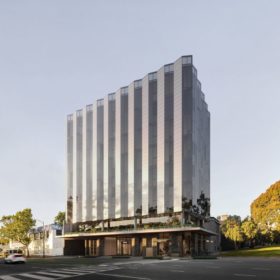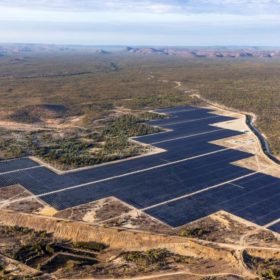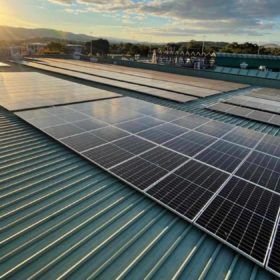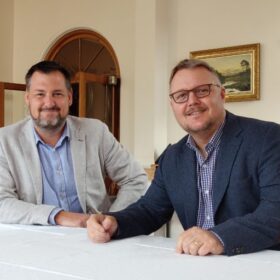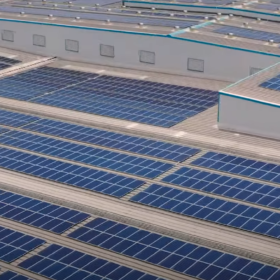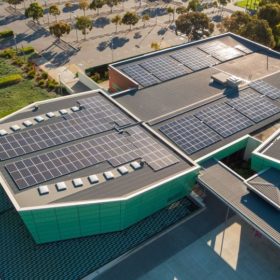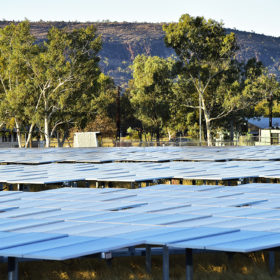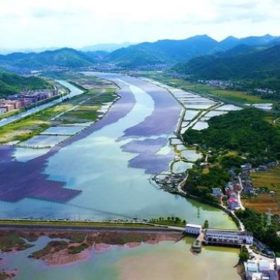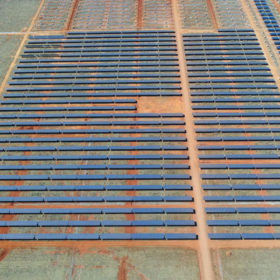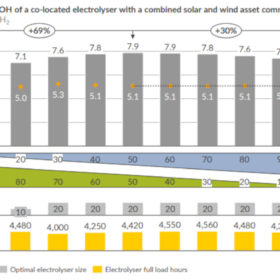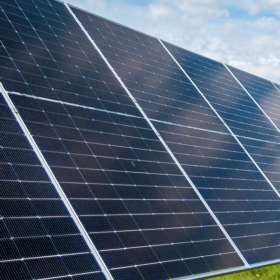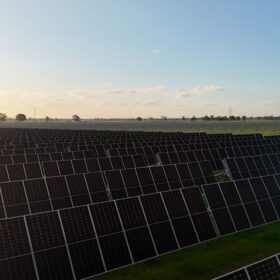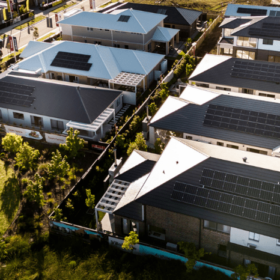‘Solar skin’ set to power $40 million Melbourne office tower
With architects and construction companies across the world showing an increasing interest in building integrated PV, one Australian company has outlined plans to clad an eight-storey building being constructed in West Melbourne with a “solar skin” that will generate almost all of the building’s base power.
Queensland solar farms dominate utility scale solar in May
New South Wales has topped the charts for large-scale renewable energy generation in May but Queensland has dominated the solar stakes with the top six utility PV assets for the month all located in the sunshine state.
Supermarket major reaches milestone in rooftop solar rollout
Australian supermarket giant Woolworths has marked a major milestone in its rooftop solar program with a store in the Canberra suburb of Conder becoming the retailer’s 150th outlet to be fitted with solar PV panels.
Brisbane-based green hydrogen company wants to get its projects off the ground with ground-level crowdfunding
Brisbane-based Line Hydrogen is seeking $2 million in crowdfunding investment from Australians who want to contribute to the green energy revolution at the ground level by getting its Tasmanian and Queensland green hydrogen projects off the ground.
India installed 456 MW of rooftop solar in Q1
India’s rooftop solar installations increased by 34% year on year in the January-March period, despite a 17% increase in system costs.
City counts on fast tracking solar rollout to deliver millions in savings
Western Australia’s City of Stirling has fast tracked its investment in an estimated $6 million solar PV program in a bid to maximise potential savings and reach its goal of sourcing 100% of the city’s electricity needs from renewables by 2030.
Outback VPP trial to offer glimpse of renewables-dominated future
With some of the highest rooftop solar PV penetration in Australia the outback town of Alice Springs will soon play host to the Northern Territory’s first resident Virtual Power Plant with the project partners exploring how best to bolster the reliability of the local grid and pave the way for the increased penetration of renewable energy.
Floating solar, tidal energy plant goes online in China
CHN Energy has linked a 100 MW floating PV plant to an existing 4.1 MW tidal energy system in China’s Zhejiang province. The tidal power station was commissioned in 1980 and is the fourth-largest system of its kind in the world.
Esco confirms sale of ‘shovel-ready’ 125MW Victorian solar farm
Australian engineering firm UGL has begun building the 125MWp Glenrowan Solar Farm in Victoria’s northeast after solar-focused developer Esco Pacific announced it had finalised the sale of the project to Australia-based contractor Cimic Group.
Green hydrogen price may drop to $7.5/kg by 2025
Aurora Energy Research says in a new report that maximum green hydrogen project profitability could be achieved when solar and wind power plants are combined with electrolysers.
